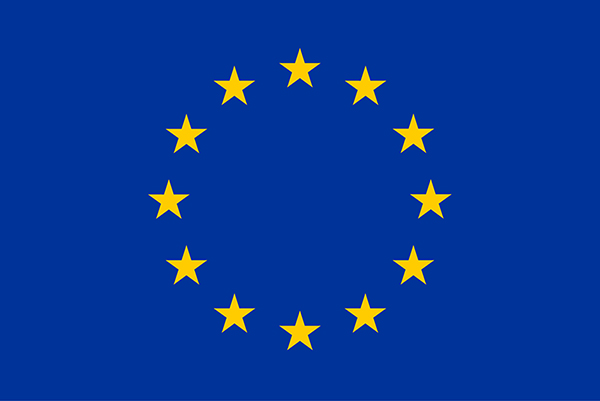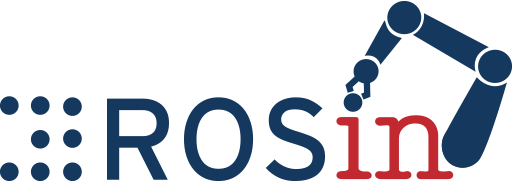https://github.com/cyberbotics/urdf2webots
Utility to convert URDF files to Webots PROTO nodes
https://github.com/cyberbotics/urdf2webots
gazebo robotics robotics-simulation urdf webots
Last synced: 3 months ago
JSON representation
Utility to convert URDF files to Webots PROTO nodes
- Host: GitHub
- URL: https://github.com/cyberbotics/urdf2webots
- Owner: cyberbotics
- License: apache-2.0
- Created: 2018-07-05T14:04:29.000Z (about 7 years ago)
- Default Branch: master
- Last Pushed: 2025-02-03T13:54:36.000Z (5 months ago)
- Last Synced: 2025-04-01T11:02:14.480Z (3 months ago)
- Topics: gazebo, robotics, robotics-simulation, urdf, webots
- Language: Python
- Size: 114 MB
- Stars: 141
- Watchers: 33
- Forks: 45
- Open Issues: 16
-
Metadata Files:
- Readme: README.md
- Contributing: CONTRIBUTING.md
- Funding: .github/FUNDING.yml
- License: LICENSE
Awesome Lists containing this project
- awesome-webots - urdf2webots
README
# urdf2webots

[](https://badge.fury.io/py/urdf2webots)
This tool converts URDF files into Webots PROTO files or into Webots Robot node strings.
Python 3.5 or higher is required.
## Install
### From pip
```
pip install urdf2webots
```
On macOS, export the pip binary path to the PATH: `export PATH="/Users/$USER/Library/Python/3.7/bin:$PATH"`
### From Sources
```
git clone --recurse-submodules https://github.com/cyberbotics/urdf2webots.git
pip install --upgrade --editable urdf2webots
```
## Usage
### From pip
```
python -m urdf2webots.importer --input=someRobot.urdf [--output=outputFile] [--normal] [--box-collision] [--tool-slot=linkName] [--help]
```
### Arguments
The script accepts the following arguments:
- **-h, --help**: Show the help message and exit.
- **--input=INPUT**: Specifies the URDF file to convert.
- **--output=OUTPUT**: If set, specifies the path and, if ending in ".proto", name of the resulting PROTO file. The filename minus the .proto extension will be the robot name (for PROTO conversion only).
- **--robot-name**: Specify the name of the robot and generate a Robot node string instead of a PROTO file (has to be unique).
- **--normal**: If set, the normals are exported if present in the URDF definition.
- **--box-collision**: If set, the bounding objects are approximated using boxes.
- **--tool-slot=LinkName**: Specify the link that you want to add a tool slot to (exact link name from URDF, for PROTO conversion only).
- **--translation="0 0 0"**: Set the translation field of the PROTO file or Webots Robot node string.
- **--rotation="0 0 1 0"**: Set the rotation field of the PROTO file or Webots Robot node string.
- **--init-pos=JointPositions**: Set the initial positions of your robot joints. Example: `--init-pos="[1.2, 0.5, -1.5]"` would set the first 3 joints of your robot to the specified values, and leave the rest with their default value.
- **--link-to-def**: Creates a DEF with the link name for each solid to be able to access it using getFromProtoDef(defName) (for PROTO conversion only).
- **--joint-to-def**: Creates a DEF with the joint name for each joint to be able to access it using getFromProtoDef(defName) (for PROTO conversion only).
- **--relative-path-prefix**: If **--input** is not set, the relative paths in your URDF file sent through stdin will use this prefix. For example: `filename="head.obj"` with `--relative-path-prefix="/home/user/myRobot/"` will become `filename="/home/user/myRobot/head.obj"`.
In case the **--input** option is missing, the script will read the URDF content from `stdin`.
In that case, you can pipe the content of your URDF file into the script: `cat my_robot.urdf | urdf2proto.py`.
Relative paths present in your URDF file will be treated relatively to the current directory from which the script is called unless **--relative-path-prefix** is set.
> Previously the **--static-base** argument was supported in order to set the base link to be static (disabled physics). It has been removed as there is a better way to do it by adding the following to your URDF file (assuming **base_link** is the root link of your robot):
>
>```
>
>
>
>
>
>```
### In your Python Code
#### Arguments
The command line arguments available from the terminal are also available from the Python interface, but some have different names:
| Terminal | Python |
|----------|-------------|
| --input | input |
| --output | output |
| --robot-name | robotName |
| --normal | normal |
| --box-collision | boxCollision |
| --tool-slot | toolSlot |
| --translation | initTranslation |
| --rotation | initRotation |
| --init-pos | initPos |
| --link-to-def | linkToDef |
| --joint-to-def | jointToDef |
| --relative-path-prefix | relativePathPrefix |
In Python, you can convert a URDF file by passing its path as an argument to the `convertUrdfFile()` function or directly by passing its content as an argument to the `convertUrdfContent()` function.
#### Convert into Webots PROTO files
```
from urdf2webots.importer import convertUrdfFile
convertUrdfFile(input = 'MY_PATH/MY_URDF.urdf')
```
or
```
import pathlib
from urdf2webots.importer import convertUrdfContent
robot_description = pathlib.Path('MY_PATH/MY_URDF.urdf').read_text()
convertUrdfContent(input = robot_description)
```
#### Convert into Webots Robot node strings
```
from urdf2webots.importer import convertUrdfFile
convertUrdfFile(input = 'MY_PATH/MY_URDF.urdf', robotName="myRobot")
```
or
```
import pathlib
from urdf2webots.importer import convertUrdfContent
robot_description = pathlib.Path('MY_PATH/MY_URDF.urdf').read_text()
convertUrdfContent(input = robot_description, robotName="myRobot")
```
### In-Depth Tutorial
Check out [this tutorial](./docs/tutorial.md) for a more in-depth, step by step instruction, on how to:
- Generate a URDF file from a ROS repository.
- Convert your URDF file to a Webots PROTO file.
- Load your converted model into Webots and make final adjustments.
- Convert your URDF file to a Webots Robot string and import it.
## Notes
This tool was tested using Webots R2022b on Ubuntu22.04.
You can find the sources of these URDF files here:
- Universal Robot: https://github.com/ros-industrial/universal_robot/tree/kinetic-devel/ur_description
- PR2 robot: https://github.com/PR2/pr2_common/tree/kinetic-devel/pr2_description
- Motoman robot: https://github.com/ros-industrial/motoman/tree/kinetic-devel/motoman_sia20d_support
- Kinova robot: https://github.com/Kinovarobotics/kinova-ros/tree/kinetic/kinova_description
- gait2392 human skeleton: https://github.com/cyberbotics/urdf2webots/tree/master/tests/sources/gait2392_simbody
## Acknowledgements
Supported by ROSIN - ROS-Industrial Quality-Assured Robot Software Components.
More information: rosin-project.eu

This project has received funding from the European Union’s Horizon 2020
research and innovation programme under grant agreement no. 732287.
Supported by OpenDR - Open Deep Learning Toolkit for Robotics.
More information: opendr.eu

This project has received funding from the European Union’s Horizon 2020
research and innovation programme under grant agreement no. 871449.

